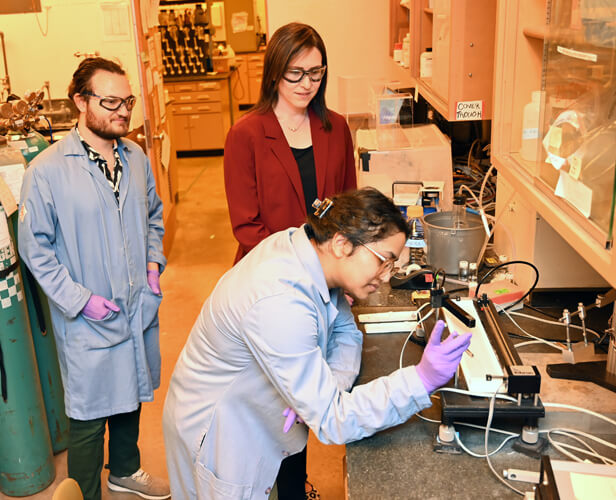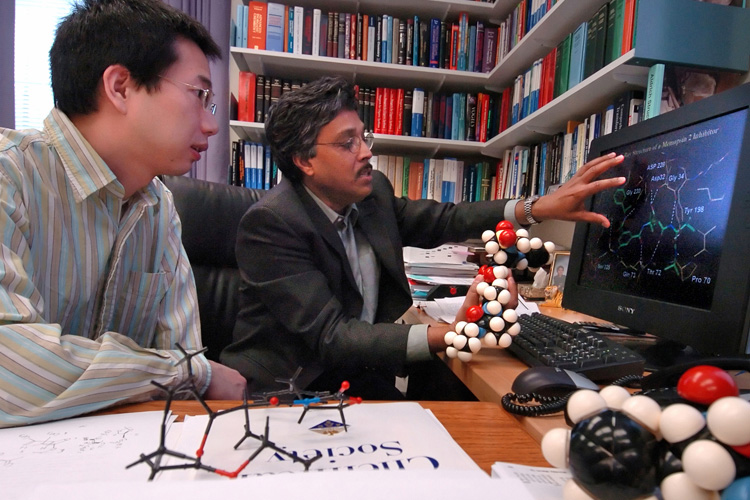Research
Our strength in analytical chemistry has as its basis unique capabilities and expertise in advanced chemical instrumentation that permeates every facet of the research enterprise in the Department. Unique research infrastructure, such as the Jonathan Amy Facility for Chemical Instrumentation (JAFCI), makes possible the design and fabrication of next-generation instrumentation. Cutting-edge research programs in mass spectrometry, separation science, non-linear laser methods, chemical imaging and microscopy, spectroscopy, nuclear magnetic resonance, and atmospheric monitoring all add to the strength of the Department in instrumentation development.
There is a strong tradition in synthetic organic and inorganic chemistry, as exemplified by the work of our Nobel prize winners H.C. Brown and Ei-ichi Negishi. The department also plays a lead role in Drug Discovery, and considers this a signature area that is currently under significant expansion as a part of the Purdue Moves university-wide initiative. Other emerging areas include chemical imaging, functional materials, and catalysis. The wide ranging expertise in the Department enables us to respond quickly and effectively to emerging interdisciplinary research opportunities, positioning the department as a key component of many of the university-wide centers and institutes, particularly the exciting initiatives in Discovery Park.
Chemistry Core Areas
- Analytical Chemistry
- Biochemistry
- Chemical Biology
- Inorganic Chemistry
- Materials Chemistry
- Organic Chemistry
- Physical Chemistry
- Theoretical Chemistry
Center for Analytical Instrumentation Development (CAID)
The mission of CAID is to develop innovative "machine-tools of science" that enable discoveries across a broad spectrum of life science. These activities will lead to routine, point-of-need devices for use in drug discovery, clinical diagnostics, environmental monitoring, and the fight against chemical and biological terrorism.

Dr. Claridge’s group has recently developed unconventional strategies to extend precise chemical control to imperfect surfaces operating under real-world conditions, opening the door to a broad range of applications from human health to wearable electronics.

Professor Arun Ghosh and his research group are addressing many challenging problems in today's medicine, including: Coronavirus drug discovery, HIV/AIDS and Alzheimer's research, and the medicinal significance of natural products.